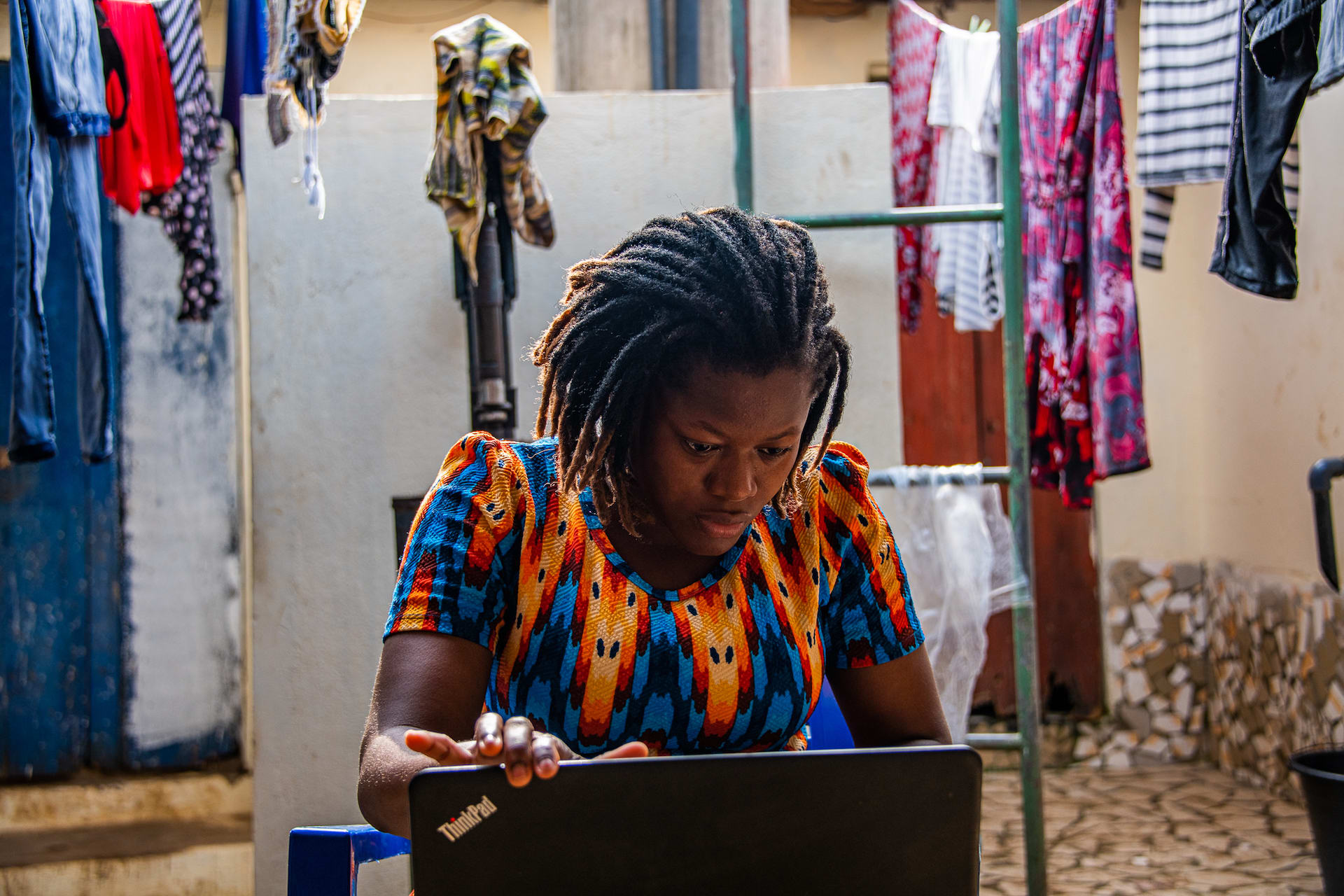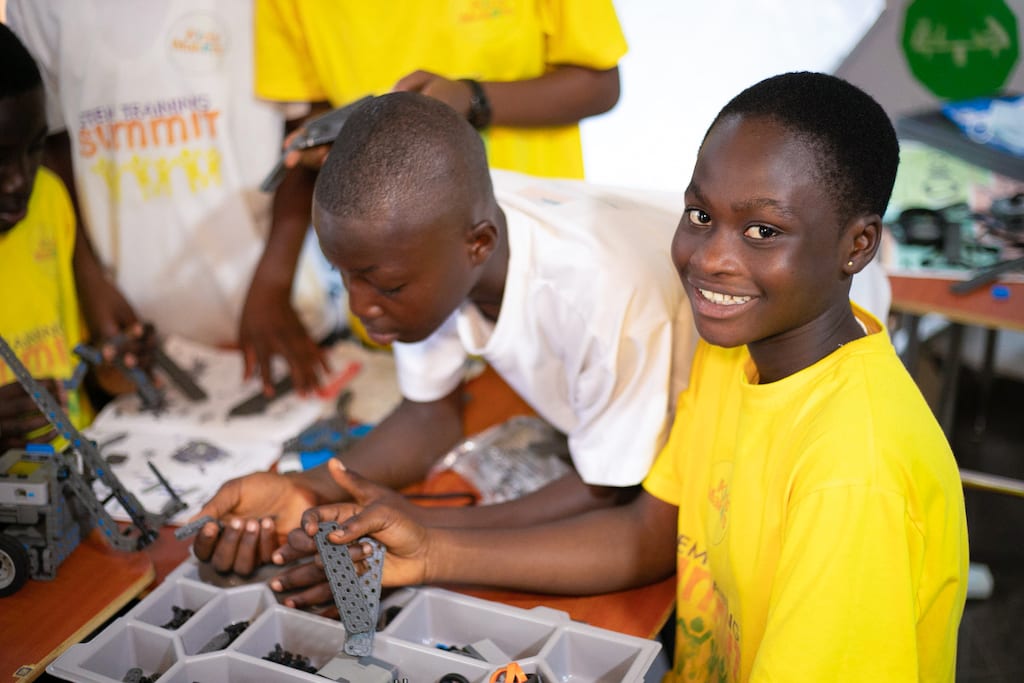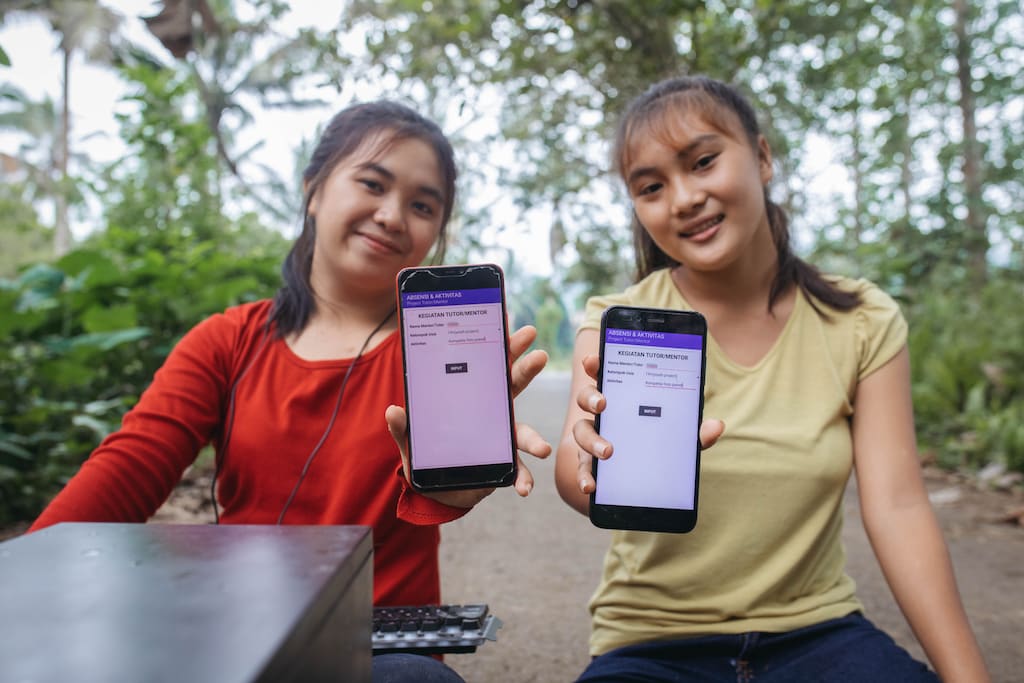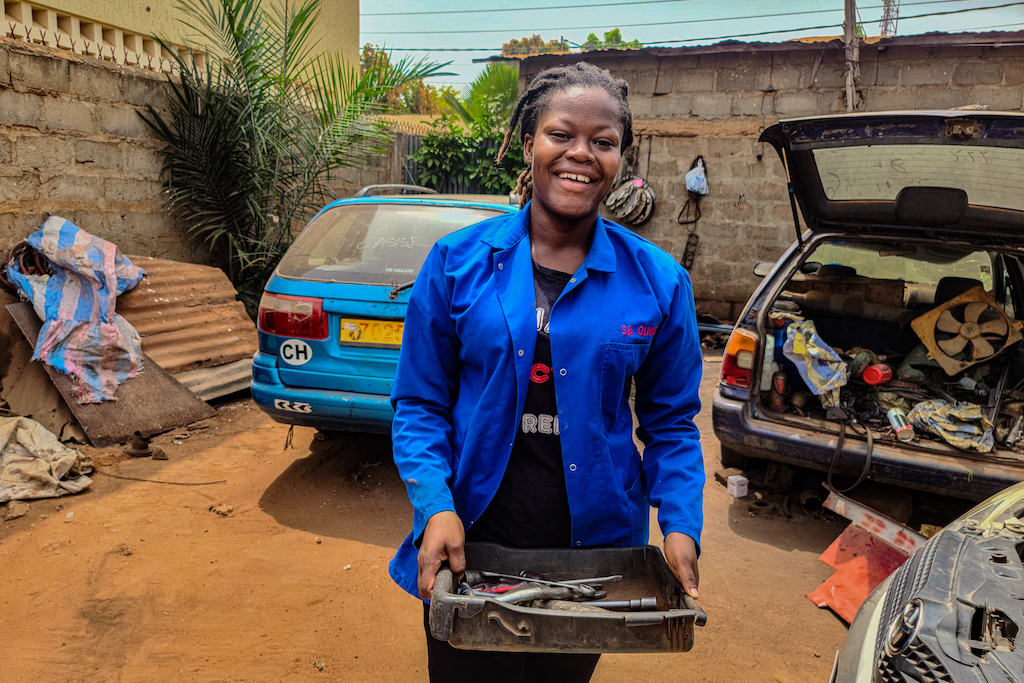
Women and girls in tech fields unfortunately still face many barriers to equal opportunity. This is especially true for girls living in poverty.
For many girls around the world, just being in school at all is a challenge, let alone studying in a field where they face significant barriers and lack representation. Globally, approximately 129 million girls are out of school (UNICEF).
And yet, the benefits of staying in school for girls in poverty are immense. According to UNESCO, just one more year of school can increase a girl’s earnings when she is an adult by up to 20 per cent!
GIVE NOW: Support girls pursuing science and technology degrees in Togo.
Around the world, young women and girls are exploring degrees and careers in STEM fields thanks to the generosity of Compassion supporters. We want to introduce a few of them to you today!
Meet 5 girls in tech who are breaking free from poverty
Two girls in robotics: Florence and Ann-Marian, Ghana

Ann-Marian is part of a Compassion robotics team that represented Ghana in the 2021 Pan-African Robotics (Techs League) Competition.
In 2019, the staff at Kent-Nsenie Child Development Centre in Ghana initiated a robotics program for Compassion kids at the centre.
“We rolled out this initiative because many children in Africa are not adequately exposed to emerging technologies,” says Mr. Sandy, the centre director.
The pandemic interrupted the program rollout, but once they could resume, the youth picked up the coding and robotics skills so quickly that they were selected to represent Ghana in the 2021 Pan-African Robotics (Techs League) Competition—and they finished third!
A key part of this initiative was including girls on the team and showing them that robotics isn’t just for boys!
“Before this training, I didn’t know that science could be fun. But now I’ve seen for myself that robotics and engineering is fun,” says 14-year-old Florence.
Ann-Marian agrees enthusiastically. “My next step is to convey the skills I’ve learned to encourage my fellow teenage girls that with determination and hard work they can do anything they want,” she says. “Robotics is not only for men, but also for women too!”
Two girls in coding: Meysella and Jeny, Indonesia

Meysella and Jeny show off the mobile app they developed together.
The first time Meysella and Jeny ever used a computer was at their local Compassion centre.
“I was nervous and excited when my Compassion tutor allowed me to operate a computer,” says Meysella. “I don’t have a computer at home. My parents can’t afford one.”
Owning a computer is wishful thinking for their families, who have enough to worry about in simply getting food on the table.
But for these girls with big dreams, the computer lab and classes at their Compassion centre are vital to their plans for the future.
Last year, Jeny, Meysella and three friends signed up for coding classes. After graduating from the course, they decided to try their hand at creating an app!
“We have some learning materials from the course, and we added more information by watching some tutorial videos on YouTube about creating basic apps,” says Jeny.
Based on discussions between the girls and the Compassion tutors, they agreed to make a basic attendance application so that tutors don’t have to go to the Compassion centre office to fill in attendance manually.
After a month, the attendance application was completed and ready to be used!
“What I have done proves that even though I live in a village and don’t have a personal computer, I can still learn to create a simple program. Compassion helps me think outside the box and motivates me to keep going,” says Meysella.
“If I had never joined the Compassion program, I might never have dreamed of learning about coding. Here, I learned something I had never thought of before,” says Jeny.
One girl in engineering: Winner, Togo

Winner carries a set of tools for a car she is repairing.
Winner has always been interested in engines and how to make them run. That’s why at a career orientation session organized by her Compassion centre, she decided to study mechanical engineering.
Many people doubted her choice. “Some teachers even told me during the first days in class that I should find another course to follow,” she recalls. “They said I could never make it, that mechanical engineering was not for women.”
But this young woman hasn’t let the doubt and discouragement hold her back. And alongside her every step of the way was her Compassion centre, where she first dreamt of studying engineering.
Compassion supported Winner financially, providing a laptop, books and support with transportation fees to the university.
Winner’s goal is to establish a company to increase access to electricity through solar power. She also hopes to be admitted to university abroad where she can study aeronautical engineering.
“I am grateful to the centre,” she says. “I see a difference between myself and other girls my age. Most of those I went to school with didn’t progress and are now mothers of two or three children. But I’ve been sustained until now, thanks to the guidance I received from the Compassion centre.”
New this year, the Girls in Tech gift in the Gifts of Compassion gift guide will provide tuition and learning materials to girls in Togo who are pursuing bachelor’s degrees in science and technology.
Help girls in tech achieve their dreams and break free from poverty.
Photos and field reporting by Rachael Cudjoe-Yevu (Ghana), Vera Aurima (Indonesia) and Gabriella Akpene Samaty (Togo)



